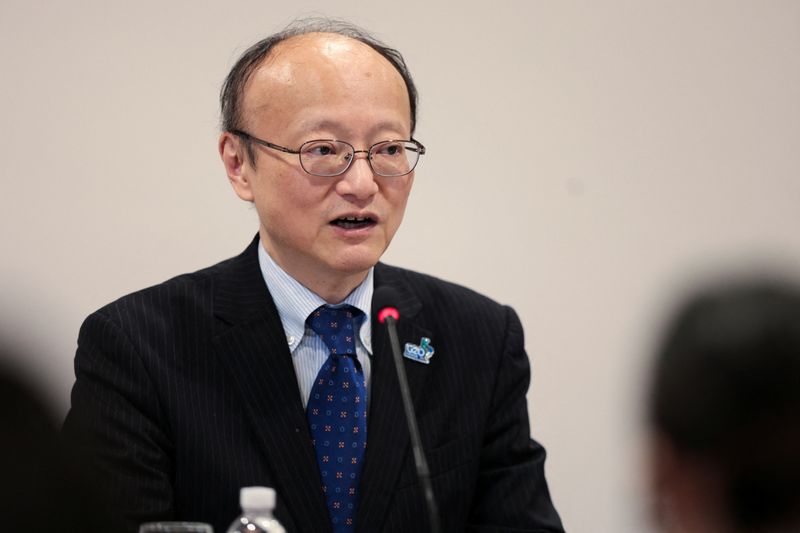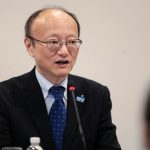RIO DE JANEIRO (Reuters) – Japanese Finance Minister Shunichi Suzuki and top currency diplomat Masato Kanda both refrained from commenting on foreign exchange on Wednesday, as the yen surged to its highest level against the dollar in more than two months.
Asked about the yen’s recent sharp rise, Suzuki said he would refrain from making any comment, noting that “could give unforeseen effects on the market.”
Kanda, the vice finance minister for international affairs, repeated Suzuki’s comment about unforeseen effects when asked whether speculative moves that he had previously blamed for the yen’s weakness had waned.
The yen rose more than 1% on Wednesday to its highest level since May, as investors unwound short-yen positions ahead of next week’s Bank of Japan policy review when policymakers are expected to discuss a rate increase.
Suzuki and Kanda spoke to reporters in Rio de Janeiro after a meeting of finance leaders from the Group of Seven (G7) nations, which took place on the sidelines of a G20 finance leaders’ meeting.
The silence contrasted with their repeated warnings of action against excessive volatility earlier this month, when Tokyo was suspected to have spent nearly 6 trillion yen ($39.22 billion) intervening in the market to lift a currency that has languished at 38-year lows below 160 per dollar.
Kanda said foreign exchange was not on the G7 agenda on Wednesday.
“But we as G7 discuss the topic on a routine basis,” he said.
Sources familiar with the matter have said Japan would seek reaffirmation at the G20 meeting of previously agreed commitments that exchange rates reflect underlying economic fundamentals.
Some politicians have called on the Bank of Japan to offer more clarity on its rate hike plan partly to prevent the yen from testing fresh lows against the dollar, adding to the pressure on the central bank.
While a weak yen gives exports a boost, it has become a source of concern for policymakers by pushing up the cost of imports and hurting consumption.
Kanda told reporters that Wednesday’s G7 meeting took up the issues of China’s growing excess industrial capacity, but declined to comment further.

He also said G7 finance leaders made “significant progress” in talks on harnessing the earnings from frozen Russian sovereign assets to back a $50 billion loan to Ukraine, without elaborating on details.
($1 = 152.9700 yen)
To read the full article, Click Here

